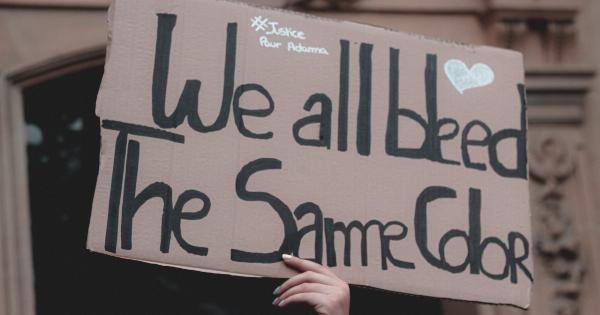Every year, thousands of individuals suffer from various crimes. Many of these crimes could have been prevented if the necessary reforms were implemented.
Unfortunately, political leaders often lack the courage to initiate and implement the much-needed reforms. The lack of political will leads to an increase in the number of victims and perpetuates the cycle of crime.
The importance of political courage
Political courage is essential in implementing reforms that can protect citizens from becoming victims. Political courage requires leaders to put aside their political interests and put the interests of the public first.
Leaders who exhibit political courage are not afraid to take on tough challenges and implement long-term solutions that will lead to the betterment of society.
Reforms to prevent future victims
There are many ways political leaders can help prevent crimes and protect citizens from becoming future victims. Some of these reforms include:.
- Investing in law enforcement: Providing law enforcement agencies with the necessary resources is essential in preventing crimes. This includes funding, training, and equipment.
- Strengthening gun control laws: The United States has one of the highest gun ownership rates in the world. Strengthening gun control laws can help prevent gun-related crimes and reduce the number of victims.
- Implementing criminal justice reforms: The criminal justice system can be reformed to ensure it is fair and just for all individuals. This includes initiatives such as reducing mandatory minimum sentences and implementing more community-based programs.
- Improving mental health services: Many crimes are committed by individuals who suffer from mental illnesses. Improving mental health services can help prevent crimes and provide individuals with the necessary support they need.
- Investing in education and other social programs: Investing in education and other social programs can help reduce poverty, unemployment, and other factors that contribute to crime.
The challenges of implementing reforms
Despite the benefits, implementing reforms can be challenging. Some of the challenges that political leaders face include:.
- Opposition from interest groups: Interest groups such as the National Rifle Association can put pressure on political leaders to block reforms that do not align with their agenda. These groups may also lobby politicians to support their interests.
- Budget constraints: In many cases, implementing reforms requires a significant amount of funding. Budget constraints can be a significant obstacle for political leaders who are trying to implement reforms.
- Political pressure and opposition: Political leaders may face opposition from other politicians who have different views on the reforms. This can make it difficult for political leaders to garner support for the reforms.
Examples of political courage in action
Despite the challenges, there have been many examples of political leaders who have exhibited political courage in implementing reforms. Some of these examples include:.
- Barack Obama: As President of the United States, Obama implemented several reforms aimed at reducing gun violence. These reforms included strengthening background checks and limiting the sale of certain types of firearms.
- Justin Trudeau: Prime Minister of Canada, Trudeau implemented a criminal justice reform bill aimed at reducing mandatory minimum sentences and redirecting funds towards community-based programs.
- Angela Merkel: As Chancellor of Germany, Merkel implemented several reforms aimed at improving mental health services. These reforms included increasing funding for treatment programs and improving access to mental health care services.
- Nelson Mandela: As President of South Africa, Mandela implemented several reforms aimed at reducing poverty and unemployment. These reforms included investing in education and infrastructure programs.
The importance of citizen involvement
Citizens have a significant role to play in implementing reforms that can prevent future victims.
Citizen involvement can help political leaders understand the importance of implementing reforms and provide support in the face of opposition from interest groups and other politicians. Involvement can include:.
- Contacting political leaders: Citizens can contact their political leaders and advocate for reforms that can help prevent future victims.
- Participating in demonstrations: Demonstrations can send a strong message to political leaders that citizens want reforms to be implemented.
- Voting: Citizens have the power to elect political leaders who are committed to implementing reforms.
- Joining advocacy groups: Advocacy groups can provide citizens with a platform to voice their concerns and advocate for the necessary reforms.
- Volunteering: Volunteering with law enforcement agencies, mental health organizations, and other groups can help prevent crimes and provide support to individuals who may be at risk of becoming victims.
Conclusion
Implementing reforms that can prevent future victims requires political courage. Political leaders must be willing to put aside their political interests and prioritize the interests of the public.
Citizens also have a significant role to play in advocating for reforms and providing support to individuals who may be at risk of becoming victims. By working together, political leaders and citizens can make meaningful progress in preventing future crimes and protecting citizens from becoming victims.





























